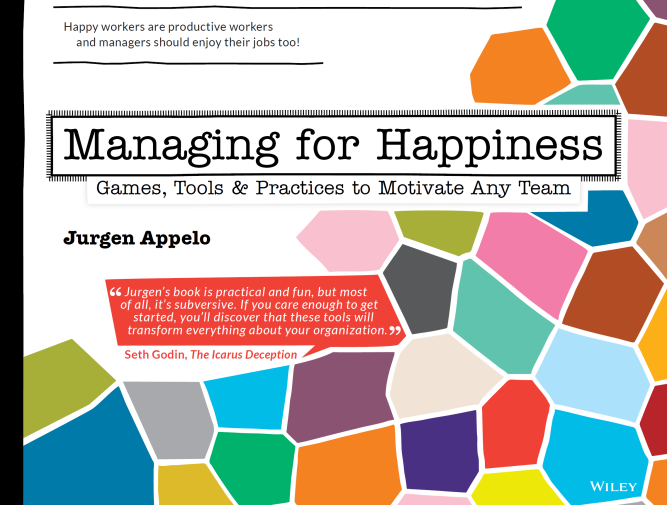Sometimes you don't need statistics. Sometimes you don't need retrospectives. Sometimes you don't need superlatives.

13 Business Models for Book Authors
People pay for access and exclusivity, not for stupid copies. You need to develop your sense of business accordingly and think about your business model as a book author.
It’s such a great time to write books!
The publishing world is transforming rapidly and smart authors–with a sense of business–will thrive on opportunities that didn’t exist until a few years ago.
It appears that almost one-third of all e-books sold on Amazon are published by indie authors. This is great news for everyone who loves freedom and independence (including yours truly). On the other hand, income for book writers seems to be declining steadily. This will only get worse now that Amazon has started offering subscriptions to read unlimited numbers of e-books, thereby moving in the same direction as Netflix (for movies) and Spotify (for music), further reducing the income for authors along the way.
But what if your purpose is to write?
How can you survive when people can read everything while paying almost nothing? Oh, the horror!
Well, it has always been something special when book authors earned a full-time living from their book sales alone. This century, authors living on royalties will become as rare as politicians living on charity. The solution is to see your writing as part of a larger picture.
Don’t just think of yourself as merely a writer.
You are an expert, an authority, a creative entrepreneur.
That’s why you should consider the business model around your books. Basically, there are three categories, and I distinguish four kinds of models in each of them. That makes twelve business models, for the quick-brained among you. Hell, I will even throw in a thirteenth, just for fun!
Freemium Models
Is the compensation you get for writing your regular books considered less rewarding than slave labor? No problem! When you grow and nurture small groups of enthusiasts around your work, you can earn yourself a decent income with your extra materials:
- You can offer exclusive and extended editions of your books, or any other improved versions that are seen as more valuable than your regular editions. For example, crazy as I am, I offer the standard PDF version of my new book for free. However, some people prefer to pay a premium price for the more convenient and exclusive Kindle and ePub editions (September) and the signed paper edition (November).
- You can sell additional materials that you offer as complementary products, such as workbooks, recordings, or even your original illustrations. For example, I sell a few physical card games, such as Moving Motivators and Delegation Poker, which are referenced in my book. Basically, your unprofitable book could be the loss leader that enables you to sell your other information products with a healthy margin.
- Bundling multiple items, including your previous books, exclusive editions, and additional products, can be an interesting approach to selling more of what you already have. Even when you only have regular e-books for sale, you can still earn a bit more by offering people the convenience of purchasing everything you have in one simple transaction.
- The fourth option in this category is to offer your book as a bulk sale to another party. You could sell a large quantity of your books to a specialized retailer in your field. Or maybe a company wants to license your materials and print a special edition of your book, with the logo of the company on it and a foreword by the CEO. The company could use it as a gift for their customers. (Hey, do you want license my book?)
Personal Models
So, you feel anxious about earning next to nothing with your writing? Don’t worry! There’s one thing that every book author has, which is a scarcity of their personal time and presence. Therefore, you can charge a premium price for your personal availability:
- For many authors, publishing a book means tripling the price of their consultancy and coaching fees. A published book acts as a business card. If your writing doesn’t suck like a greedy toddler, your book adds credibility to your résumé. Personally, I skip this option because I’m not interested in coaching and consultancy. But the strategy works remarkably well, particularly for fellow authors who write business-oriented materials.
- As an alternative to consultancy, some authors get paid for organizing workshops and courses. In this case, yes Your Honor, I plead guilty! From my experience, I know that workshops can take much more time to prepare and organize, but the fees scale better than those for consultancy. They can also be more difficult to sell, which all depends on the marketing of the book and the topics, I suppose.
- When books establish an author as an authority in a certain field, the books can function as a lead generator for the author’s public speaking career. It’s funny that event organizers sometimes ask me to speak for free, because they assume my speaking sells my books. But it’s the other way around! My books sell me as a public speaker. And price ranges for professional speakers scale even better than those for consultants and workshop facilitators.
- Last but not least, you don’t even have to leave the comfort of your home to be a consultant, trainer, or speaker. There are writers who organize paid webinars for readers who want to meet the author in person, virtually. This can range from anything to private one-on-ones to massive web conferences with hundreds of participants. In other words, this option is the virtual variant of each of the previous three business models. You do the same, but without wearing pants!
Scalable Models
Yes, I know, writing books is for most of us, from a financial perspective, a terrible waste of time. However, if you play your marketing cards well, you might be able to charge people for spin-off services that can scale across thousands of people:
- In its simplest form, a popular author can make a bit of extra money through advertising on a personal blog or as an affiliate or reseller of other people’s products. Personally, I don’t like ads on my blog, but I admit that the monthly gift cards that I receive as an Amazon affiliate–thanks to all the Top 100 lists that I offer–have enabled me to purchase any number of books and videos that I like.
- Some resourceful authors establish a valuable brand with their writing, and they are able to make some money with licensing, certification, or merchandising. It means that others pay you for the right to use your brand and they further develop the message or story. I have adopted this model with my Management 3.0 licensing program, but accreditation programs, movie rights, and even action figures would all belong in this same category. (Imagine… Martie, the Management 3.0 model, in 11.5 inch plastic, with actual rolling eyes. Awesome!)
- Some authors offer restricted access to exclusive materials on their website with an online membership program. Their fans can watch videos, play games, or just read the author’s newest materials first-hand, through a paid subscription service. With this business model, instead of selling additional products one-by-one, you sell exclusive access to a scalable service. Even something as simple as a (paid) newsletter subscription would fall in this category.
- And when you’re doing really, really well, you might even get paid for simply associating your name to a business, as a form of corporate sponsorship. You could be their media spokesperson and promote their products and services. Your head shot would be on their website and in their marketing brochures, and you’d have to be available for a commercial or two, and have a corporate logo tattooed in your neck. But hey, no pain, no gain! (I’m still working on this option.)
One Extra Model
Finally, even if none of the above seem right to you, there is still one other business model left that you can try. You could call it let-someone-else-figure-it-out.
This is the business model adopted by ghost writers, copy writers, and other freelance authors, who get paid per hour, per word, or per article. They delegate the responsibility of making money with writing to someone else, who then pays them upfront for their blog posts, web content, reports, white papers, etc. The seller gets paid for writing while the buyer studies this article top-to-bottom, and tries to figure out what will be the best return on his investment.
For example, I pay my good friend Erik to write great stories on the Happy Melly blog, while I think about scaling the Happy Melly network. In the meantime, Erik can work on his yet-to-be-released novel.
From Selling Copies to Selling Access
As you can see, there are plenty of opportunities to earn a living as a writer. And you don’t have to pick just one! I earn my income through a combination of half of the models presented here. You just need to figure out a good combination that fits your purpose and environment as an author.
Hopefully, you can see that the income for book authors is not necessarily declining. There is no lack of money in the world! However, in the 21st century, people pay for access, not for copies. As a book author, you need to switch your business model accordingly.
Good luck!
What to Read Next: Blog Post Checklist for Great Authors
Image: (c) 2011 Moyan Brenn, Creative Commons 2.0
Thanks to The Creative Penn, Authority Publishing and Write Your Path to Freedom.
Other articles in this series:
- 13 Business Models for Book Authors
- How to Pick a Book Title (in 7 Steps)
- How to Define Your Target Audience... with Questions
- How to Write a Book: Structured or Emergent
- How to Design a Book Cover... 5 Rules
- How to Design a Book… Make It an Experience
- How to Create a Book’s Front and Back Matter
- How to Write a Book… with Feedback and Options
My new book Managing for Happiness is available from June 2016.







